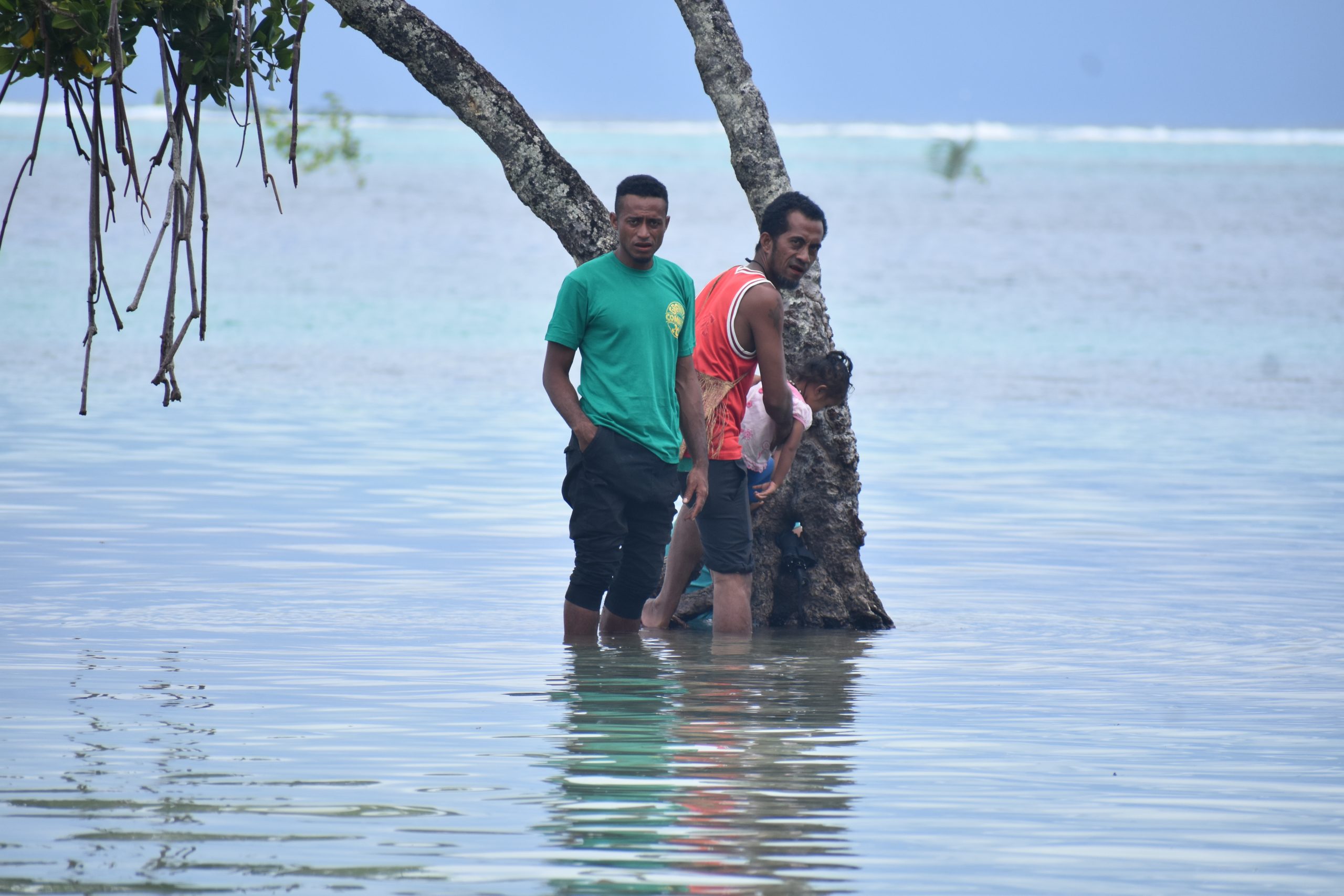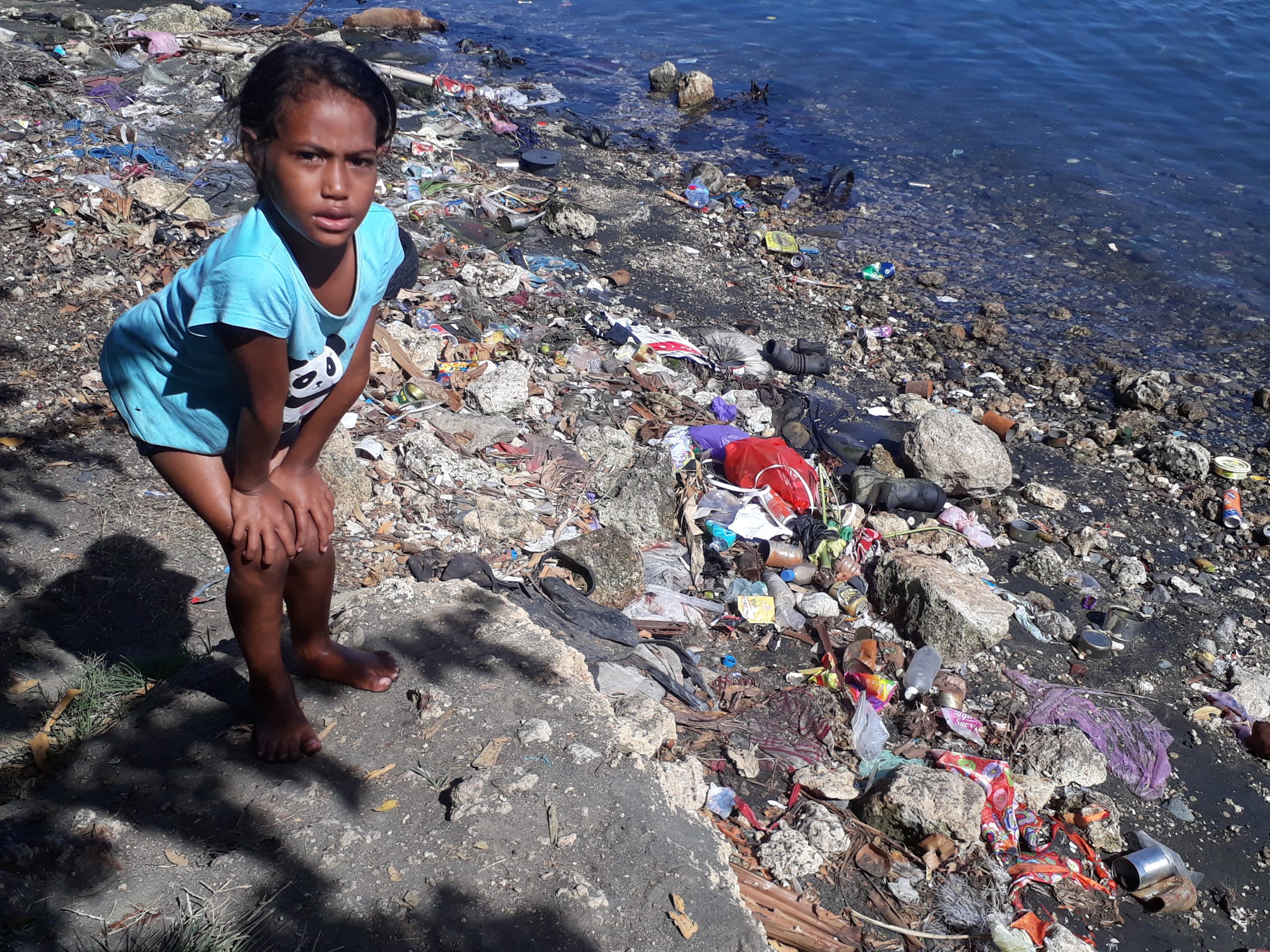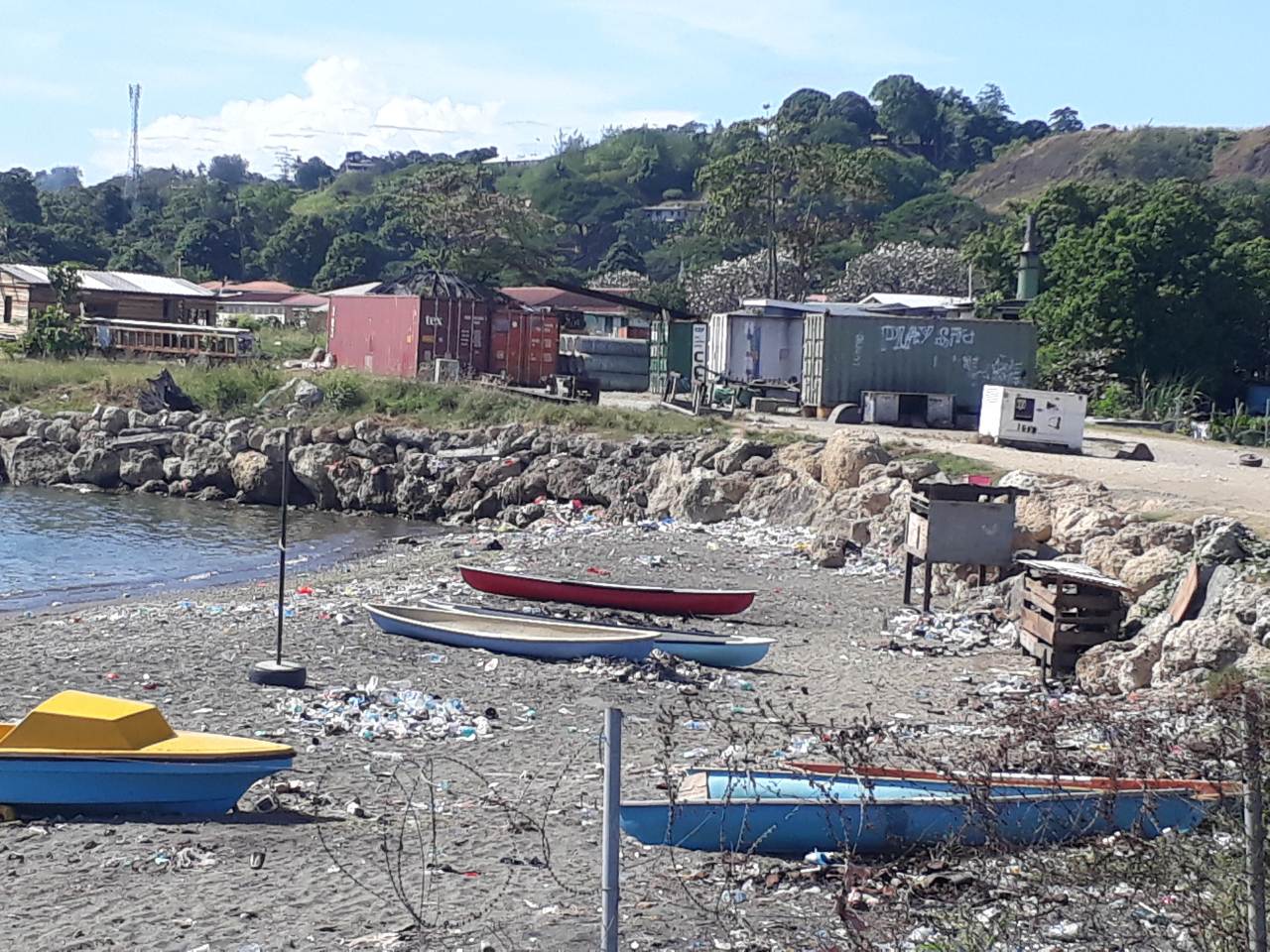SOLOMON Islands is made of scattered islands some of which are slowly perishing due to climate change.
While the majority is enjoying every day life, those from these islands continues to fight each day to address poverty, education and health.
This is the latest story of climate change in Sikaiana Island, part of the Malaita Outer Islands (MOI).
Few weeks ago Island Sun Photojournalist, Ben Newmana was among a delegation that travelled to Sikaiana to celebrate the arrival of Christianity on the Island.
Newmana managed to take few photos and also interviewed two leaders of Sikaiana.
According to the first interviewee, Mr Dexter Teui people of Sikaiana are trapped as the ocean continues to expand while the land is narrowing.
He adds that people are moving inland due to sea level rise but there is another issue – the island is very narrow and that people will soon struggle to find living space.
“We are aware that food is difficult to find recently, sea shells are gone as sand covered the mangroves due to sea level rise activities.
“Source of income such as sea cucumber and sea shell are also difficult to find as the sea becomes warmer forcing these sea creatures to move deep into the sea where it is much cooler.
“Fishing grounds are gone; people are now searching beyond the reefs to find good catch.
“Access to clean water, access to better health services and access to better education services add to the challenges,” Dexter said.
He said rising sea level is giving the Islanders a hard time.
“This spot that we are standing was then our popular spot to sit and relax in the evenings but now it now sinks under water.
“There is a huge difference in the island’s landscape compared to 10 years ago.
“Our Island is getting smaller, our gardening sites have been contaminated by salt water and salt water intrusion also contaminates our water sources,” Dexter said.
He said attempts by the islanders to apply traditional mitigation techniques proved unsuccessful.
Dexter who has been teaching at the local primary school on the Island for over a decade said the Island will soon varnish and yet there is no comforting news from the Solomon Islands Government.
He stressed that relocation process should begin now before it’s too late.
“I’m saying this because; our people are connected to the Island. Our culture and traditions are our heart, we can’t just stand and go away.
“I’m of the view that there is a need to carry out education and awareness on affected communities before relocation can be made.
“In doing so, people will understand and willingly move to any proposed relocation site,” Dexter said.
Second interviewee was Mr Billy Lamongisia – a nurse who spent the last eight years (2011 to 2019) working at Sikaiana.
He said climate change is real in Sikaiana.
Lamongisia who is originally from Malaita Province said the landscape of the Islands has changed drastically over the past eight years.
He stressed that there are also health issues caused by climate change.
Lamongisia said access to clean water is an issue and at times people got sick after drinking contaminated water.
Speaking on health services, he said the remoteness of the island puts pressure on attempt to deliver effective and better health services on the island.
“Living in Sikaiana is like living in a different planet. Transportation and communication are very poor.
“Inter-island vessels reach the island between four to six times a year and people are still using the two-way HF radio for communication.
“This is a huge challenge for me whenever there is an emergency case. Worst still, health and medical facilities are very poor. I don’t have a house to stay; the clinic is therefore my home.
“It would be very helpful if the government builds a staff house for me to stay while working here,” he said.
People of Sikaiana are among other minority groups of people in the Solomon Islands that have continued to suffer due to very limited consideration from the national government.
They suffered physically and economically as state services to the islands are close to none.




